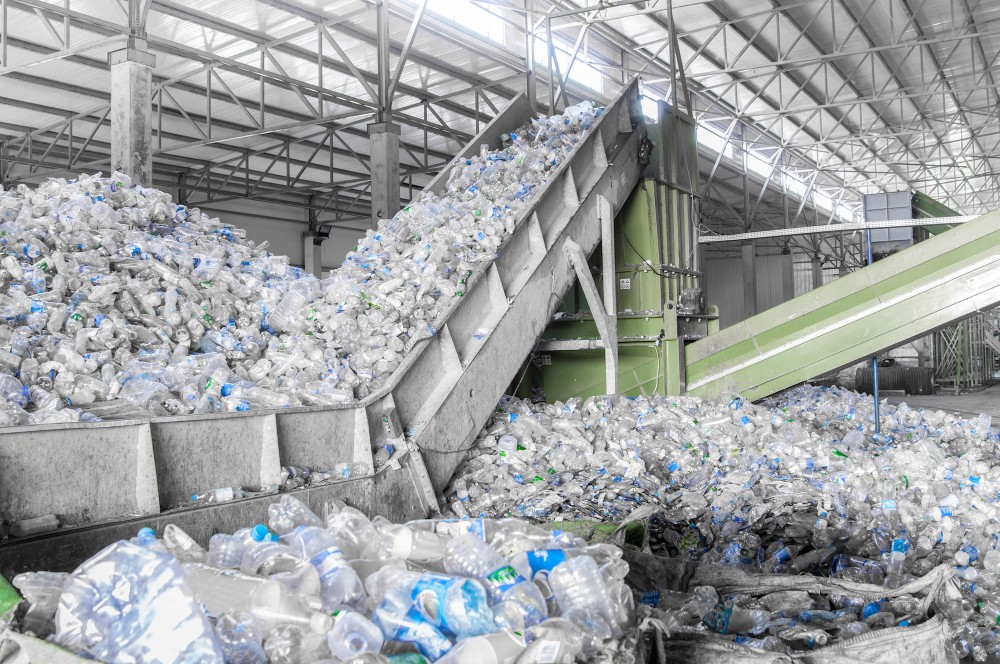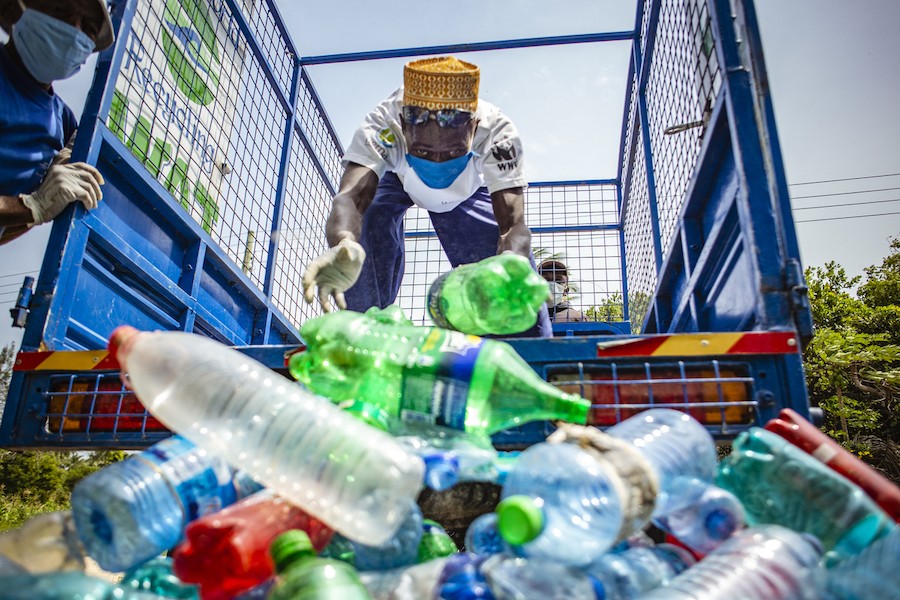Plastic waste has become a global environmental crisis that poses a significant threat to our ecosystems and human health. In the midst of this crisis, however, there is an opportunity to address another pressing problem: unemployment. Recycling plastic waste not only solves environmental issues, but also has the potential to create employment opportunities, leading to a more sustainable and prosperous society.
According to the International Labor Organization (ILO), around 220 million people were out of work worldwide in 2020, with the youth unemployment rate significantly higher than the overall average. In this article, we explore how recycling plastic waste can effectively reduce unemployment and boost economic growth.
Creating green jobs
Recycling plastic waste requires a number of processes, including collection, sorting, cleaning and reprocessing. Each of these phases represents an opportunity for job creation. Recycling facilities require workers for manual sorting, machine operation, maintenance and quality control. By establishing and expanding recycling infrastructure, governments and organizations can create a range of green jobs.

Plastics, plastics everywhere. (Image credit: Shutterstock)
Speaking at a special conference to celebrate World Environment Day held at the University of Saint Augustin (Saut) in Mwanza on June 5, 2023, Mwanza City Council Environment Officer, Fanuel Kasenene, mentioned the area of opportunities as groups to collect and remove litter from the street and recycle waste as a product;
“These jobs not only provide employment but also contribute to the development of a skilled workforce specialized in waste management and recycling techniques”.
Localized waste management systems
The introduction of localized waste management systems, including recycling centers and community initiatives, can have a direct impact on reducing unemployment. These systems involve the involvement of local communities in waste collection, sorting and recycling activities. By encouraging citizen participation, these initiatives create employment opportunities at the local level. Moreover, they enable communities to take care of their waste, instilling a sense of responsibility and care for the environment.
Entrepreneurship and small business
Recycling plastic waste opens the door to entrepreneurship and the creation of small businesses. As the demand for recycled plastic products increases, innovative entrepreneurs can explore opportunities to develop and market green products. Small recycling businesses can be created, from collection services to manufacturing businesses. These businesses not only create jobs, but also contribute to economic growth and support a sustainable and circular economy.
The youth groups can fetch Sh80,000 in a day when they collect one tons of garbage on the streets and drop it off at the landfill. All it takes is for young people to come up with creative ideas to help reduce litter on the streets.
Research and Development
The field of plastic waste recycling offers significant scope for research and development. Scientists, engineers and technicians can explore new techniques to improve the efficiency of recycling processes and develop innovative recycling technologies. This research not only drives technological progress, but also creates job opportunities in research institutions, laboratories and manufacturing facilities. In addition, the knowledge gained from these efforts can be shared globally, promoting international cooperation and further stimulating job creation.
Education and training programs
Education and training programs are key to maximizing the potential of plastic waste recycling in reducing unemployment. These programs can equip individuals with the skills needed to work in the recycling industry, including waste management, recycling techniques and quality control. Vocational training centers, technical institutes and universities can work together to design comprehensive courses that meet the requirements of the industry. By investing in education and training, governments and organizations can build a capable workforce to meet the growing need for skilled professionals in waste management and recycling.
Circular economy and sustainable development
The recycling of plastic waste is in accordance with the principles of a circular economy, where resources are used, reused and recycled in a closed system. By moving from a linear model to a circular one, we can reduce our dependence on virgin materials and create a more sustainable future. This shift requires the integration of various industries, including packaging, manufacturing and waste management. As a result, it creates new job opportunities across sectors, from recycling technicians to sustainable product designers.
Social and environmental benefits
In addition to economic benefits, recycling plastic waste brings social and environmental benefits that indirectly contribute to reducing unemployment. By diverting plastic waste from landfills and oceans, recycling mitigates pollution and protects ecosystems. This conservation of natural resources supports tourism, fishing and other industries that depend on a healthy environment, thereby creating employment opportunities in these industries. In addition, recycling reduces the need for waste management infrastructure and frees up public resources that can be redirected to job creation in other areas.
Recycling plastic waste represents an effective solution to both the environmental crisis and the problem of unemployment. By creating green jobs, supporting localized waste management systems, encouraging entrepreneurship, investing in research and development and implementing educational programs, we can unlock the economic potential of recycling.
Furthermore, the transition to a circular economy not only reduces unemployment, but also contributes to sustainable development and a healthier planet. Governments, organizations and individuals must come together to embrace recycling as a key driver of job creation, propelling us towards a more prosperous and sustainable future.
Read more articles on Tanzania’s economy here.


[…] we rely heavily on electronics daily, we must understand the importance of managing and recycling e-waste. It’s not just about protecting the environment but also about preserving our health […]